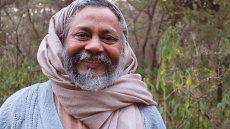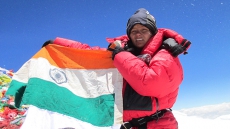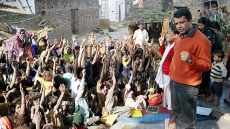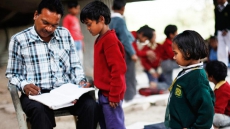The debate on preceding female education as a fundamental right beyond theory and ink has long been dominating the multicultural landscape of India. Despite daily soaps hoarding this theme into their plots, celebrities propagating heavily on the subject, and ministers devising policies to promote the appearance of females in schools, the fact remains that females are extensively disposed of this crucial foundation. It is this crucial foundation that Safeena Husain’s organization Educate Girls envisages to grow upon with a holistic approach.
Born and brought up in India’s capital, New Delhi, Husain spent three years after high school in a Krishna Ashram in Rishikesh, reading scriptures and then went on to pursue higher studies in the London School of Economics. After a brief stint in the Silicon Valley, Husain fulfilled her longing to work in the development sector. She was setting up clinics in Ecuador, Mexico and South Africa before she decided to head back to her homeland.

A defining moment came up when she was setting up a clinic close to the same Ashram in Rishikesh. While her father was helping her out in this project, a group of rural women asked him about his family and how many children he had. When he responded, “Safeena is my only child,” they all started crying and saying, “you’re still young, get married again and maybe you’ll have a son.” Husain’s father put his arm around Safeena and said, “This is my son, this is my daughter, this is my everything.”
At that moment, Husain said to herself that she is fortunate to walk away with her supportive father, but what about those girls who grow up in this village and are forced to live with the mentality that they are a burden. “The big equation is, my goat is an asset and my daughter is a liability,” Husain explains.
Husain’s agenda is clear - “The lack is not access to education, the problem is the mindset.” A mindset repressing the rights of females - education being the prominent one - is not confined to the rural and tribal belts of India; the urban and educated Indian has also left footprints of this prejudice. These were the footprints that Husain had been mapping since childhood and which ultimately led to the creation of Educate Girls, an organization that addresses the issue of gender inequality while enforcing constructive steps towards balanced development.

The project starts by a “team of champions” called Team Balika visiting families in a village and conducting surveys pertaining to enrollment of girls in schools. These volunteers falling within the age group of 18-24 mobilize community participation in eradicating gender disparity by intervening themselves and at times involving influential community leaders such as the Sarpanch (village leader) and religious scholars.
Currently, Team Balika comprises 4,500 volunteers and interestingly 60 percent of its members are males voicing the rights of females. “We need young boys to get up and say that all girls in my village have to go to school. We had started with the idea that we’ll only have girls but we realized that so many boys were actually joining up and it is an unpaid position.” In the school vicinity, these girls teach three times a week and work on developing school infrastructure such as toilets, drinking water, and equipment.
In figures, the success of Educate Girls is tremendous and is evident from the several awards it has been honoured with since its inception in 2007 - over 80,000+ out-of school girls have been enrolled in schools; presence in over 8,500 schools across 4,500 villages; increase of over 35 to 60 percent in learning outcomes across Hindi, English and Math; and, over 2.8 million total beneficiaries of the organization’s programs.

But the biggest achievement for the organization, Husain states, was in Rajasthan’s district of Pali, which consists of 1067 villages. Gender gap stood at 19 percent when Educate Girls first started their operations in the district, and today that gap stands between 5-7 percent. “We have close to 2.4 million non-governmental organizations in India. There is an ngo for every 400 people, but we don’t have any high impact models of girl education.”
For Husain, gender has always been a part of her own journey. Whether that be her own experience with abuse and violence by her stepfather, or her encounter with biased ideologies while setting up her own clinic,
Husain has been cognizant of the gender gap issue. In good spirits however, Husain ends by saying, “I’m trying to clone my father for other girl child [children].” And by looking at the obvious success of Educate Girls, we know she
already has.





